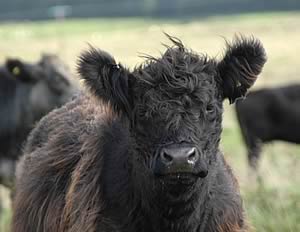 |
|||||||||
|
|||||||||||||||||||
|
|
Climate Change Talks Should Include Farmers 2009-Apr-02 Agriculture in developing countries could play crucial role in mitigating greenhouse gas emissions.
FAO has urged policy makers to include agriculture in negotiations for a new climate change treaty to replace the 1997 Kyoto protocol. "Agricultural land is able to store and sequester carbon. Farmers that live off the land, particularly in poor countries, should therefore be involved in carbon sequestration to mitigate the impact of climate change," said Alexander Mueller, FAO Assistant Director-General on the occasion of the ongoing UN negotiations on a future international climate change agreement in Bonn. Agriculture accounts for about 14 percent of greenhouse gas emissions, and land use changes such as deforestation for another 17 percent. "While agriculture is contributing to greenhouse gas emissions, farmers and their families, particularly in poor countries, will also become victims of climate change. It will worsen their living conditions and hunger and malnutrition will increase. Rural communities dependent on agriculture in a fragile environment will face an immediate risk of increased crop failure and loss of livestock. Mostly at risk are people living along coasts, in floodplains, mountains, drylands, and the arctic," Mueller said. "That is why agriculture needs to be put on the agenda of global climate change negotiations. Existing financing mechanisms under the Kyoto Protocol allow only a very small fraction of the mitigation potential of agriculture to be realized and are therefore not sufficient," Mueller noted. Emitting greenhouse gases Crop production and livestock release greenhouse gas emissions into the air such as methane from cattle and wetlands, especially rice paddies, nitrous oxide from fertilizer use and carbon from deforestation and soil degradation. Changes in land use such as deforestation and soil degradation - two devastating effects of unsustainable farming practices - emit large amounts of carbon into the atmosphere, contributing to global warming. Annual greenhouse gas emissions from agriculture are expected to increase in coming decades due to increased demand for food and shifts in diet. "But millions of farmers around the globe could also become agents of change helping to reduce greenhouse gas emissions," Mueller said. By keeping higher levels of carbon in the soil - a process known as "carbon sequestration" - farmers can help reduce carbon dioxide levels in the air, enhance the soil's resilience and boost crop yields. Reduced tillage, increased organic soil matter, increasing soil cover, improving grassland management, restoring degraded lands, planting trees, altering forage and sustainable use of animal genetic diversity, using fertilizer more efficiently, improving water and rice management, are options farmers can apply to mitigate greenhouse gas emissions in agriculture. "Massive investments in agriculture are required to change unsustainable production methods, to train farmers in climate change mitigation practices and to improve overall access to credit and information," Mueller said. "These investments will make agriculture more resilient to climate change and at the same time will improve agricultural productivity and sustainability, thus contributing to better food security and poverty reduction." Insufficient incentives "Current global funding arrangements, like the Clean Development Mechanism under the Kyoto Protocol, are inadequate and are not offering sufficient incentives for farmers to get involved in climate change mitigation and adaptation," Mueller said. "For example, soil carbon sequestration, through which nearly 90 percent of agriculture's climate change mitigation potential could be realized, is outside the scope of the Clean Development Mechanism under the Kyoto Protocol. Neither climate change mitigation, nor food security, nor sustainable development, benefit from this exclusion," Mueller added. Carbon markets that provide strong incentives for public and private carbon funds in developed countries to buy agriculture-related emission reductions from developing countries could provide important investments to spur rural development and sustainable agriculture in developing countries. Product standards and labels could be developed to certify the mitigation impact of agricultural goods.
|
||||||||||||||||||

|
|
||||||||||||||||||
| home | agri-services | pedigree
pen | news | dairy | beef | machinery quota | property | organisations | site map |
|||||||||||||||||||

